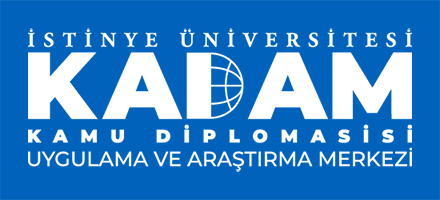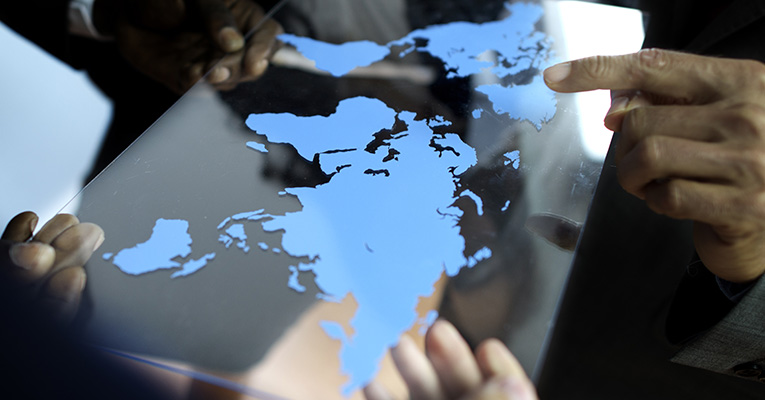



ACTUAL
In the digital age, the spread of misleading information and disinformation has serious impacts on international relations and public diplomacy. In this research, the effects of misleading information on public diplomacy and how to deal with this problem were examined.
Read MorePublic diplomacy is becoming increasingly important in international relations. This research examines how public diplomacy has become an effective tool in international crisis management.
Read More- OPINIONS

Public Diplomacy or Lobbying?
02 October 2025The relatively new concept of public diplomacy is often used interchangeably with lobbying. However, lobbying has emerged particularly in the context of negative propaganda faced by Turkey in Western countries and has stood out as a method carried out through private commercial organizations operating in the United States for this very purpose. Yet, it is difficult to argue that this method has made a significant contribution to improving Turkey’s image in the past.
In contrast, public diplomacy is an approach that aims to provide civilian contributions to a country’s foreign policy objectives. In this sense, civilian support encompasses activities carried out not by state diplomacy, but by civil society organizations, academia, opinion leaders, or prominent figures of society. For instance, activities conducted through official lobbying lists in the U.S. Congress or the German Federal Parliament (Bundestag) should not be confused with today’s dialogue-based modern public diplomacy. When evaluated in all its sub-fields, public diplomacy offers opportunities far beyond the narrow framework of lobbying, providing much broader and virtually unlimited possibilities.
Therefore, benefiting from the opportunities of public diplomacy in diverse fields such as culture, arts, science, sports, politics, economy, trade, humanitarian aid, and diaspora diplomacy to build, reshape, and reinforce a nation’s image is far more effective and beneficial than the limited lobbying efforts conducted through commercial entities.
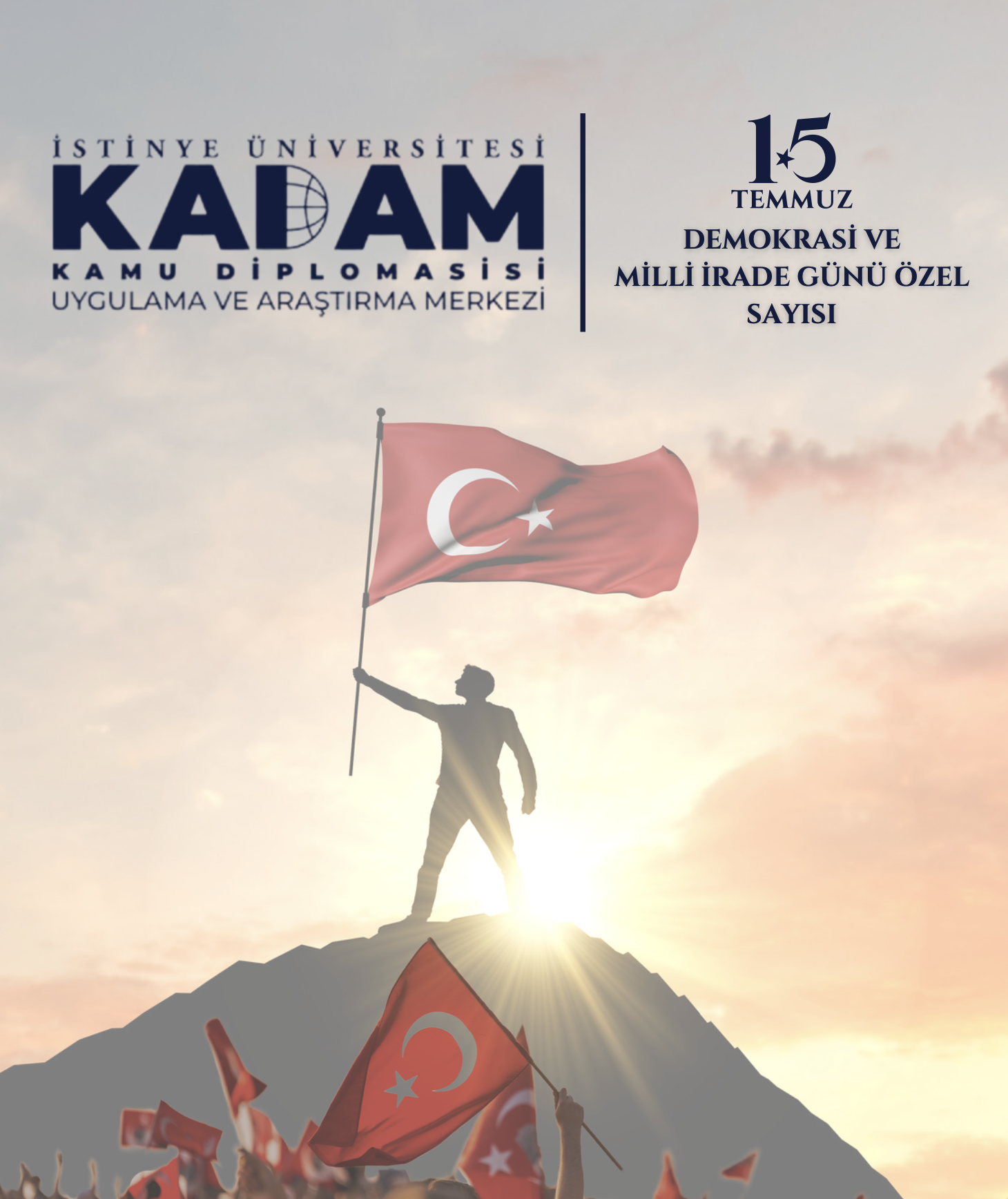
The Traitorous Coup Attempt of 15 July and Turkish Public Diplomacy
16 July 2025In this special issue, Turkey's fight against the Fetullah Terrorist Organisation (FETÖ) is discussed in the context of public diplomacy on the ninth anniversary of the treacherous coup attempt on 15 July 2016.
The diplomatic, legal, and communication-based struggle against this structure, which threatens Turkey's national security, has been evaluated through international media coverage and strategic communication policies.
Public diplomacy strategies developed against disinformation processes in Western public opinion have been analysed with examples of headlines from the German press.
As KADAM – Public Diplomacy Application and Research Centre, we express our gratitude to all citizens who stand up for our democracy; we remember our martyrs with mercy and our veterans with gratitude.
Click here to access the 15 July Special Edition.
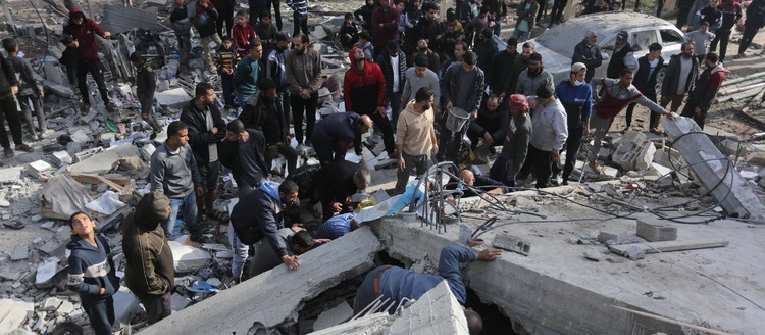
War Ethics as an Element of Public Diplomacy
21 February 2025Public diplomacy is concerned with the favourable or unfavourable impression of a nation on other nations. States using public diplomacy methods endeavour to improve their image, to prevent its deterioration and, if it is not at the desired level, to attain an image that will strengthen their political effectiveness. However, having a good image cannot be acquired only by making an effort. Nations and states have certain characteristics that come from history, are attached to their identities and are perceived by others. One of these characteristics is the behaviour of armies during war.
Before this, however, it is necessary to focus on the causes of war. Which war is just? What is an unjust war? War must be justified, such as being attacked or gross violations of human rights. On the other hand, aggressive war with the aim of destroying the opponent and without justification for defence is unjust war. There can be no ethical justification for unjust war. Naturally, it is a fact that the armies that initiate and wage unjust war behave unethically. In addition, the unethical behaviour of the members of the warring armies - such as acts of violence and extermination against civilians, destruction and looting of cultural assets, damage to the environment, disproportionate and unjustified use of force - are contrary to the norms of war ethics, whether justified or unjustified. War should be a last resort; it should not be resorted to before diplomacy and peaceful solutions are exhausted. Wars waged for the purpose of gaining power, seizing someone else's territory or riches, or for revenge are not beneficial for anyone.
War may be inevitable in some cases. However, even in this case, it is extremely important for human dignity to apply the ethical rules that have been filtered through the development of human civilisation. Many events in history that were considered war crimes - such as the dropping of atomic bombs on Hiroshima and Nagasaki and the genocide in the Bosnian War - have been condemned internationally as being contrary to the ethics of war. Today's events in Gaza and Ukraine are evidence of how easily warring parties can violate ethical rules. In particular, the crimes defined in the 1948 United Nations Convention on Genocide and the inhumane genocides in Bosnia, Khojaly in Azerbaijan, Rwanda, Sudan and many other parts of the world are proof of the tragic situation we are in on behalf of humanity. War ethics, a discipline and approach established to protect human rights, prevent unnecessary suffering and minimise the destructive effects of war, is also an important area of international law.
Throughout history, during war, which is an act of violence by its very nature and aimed at ‘killing’, the attitudes and actions of the parties against each other, which violate fundamental human rights, cannot be prevented even though ethical rules have been determined.
It is not possible for states that do not comply with the ethics of war and whose armies disregard human life with massacres and genocides to have a positive image. On the other hand, states that refrain from aggression and abide by human rights and ethical rules in armed conflicts that they have to engage in for defence purposes are considered as direct public diplomacy tools and image factors. This is one of the most important sources of reputation for states whose armed forces abide by human rights rules. States and their armies that adopt the opposite attitude are doomed to be remembered with a stain that they cannot easily erase before history and humanity.
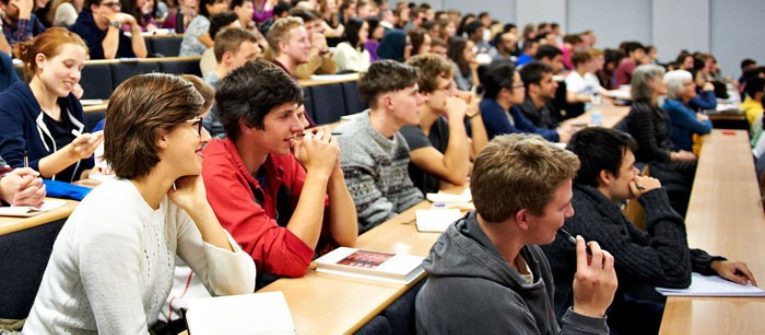
Public Diplomacy in the Academic Curriculum
21 February 2025Today, public diplomacy is rapidly transforming from a practice-oriented field to a scientific discipline with a focus on international relations. However, public diplomacy gains its real importance with its interdisciplinary character. It has close ties with a wide range of scientific disciplines from anthropology to sociology, social psychology, communication science, history, political science and cultural studies, geopolitics and economic relations. It would be surprising if such a multidimensional and multidisciplinary field is considered only within the framework of practices and does not find a scientific place in university curricula. Public diplomacy courses are included in the faculties of political science, international relations and communication sciences at universities around the world. Moreover, it is observed that public diplomacy is attracting more and more attention in postgraduate programmes. This situation is no different in Turkey. In recent years, beyond undergraduate courses, a large number of master's and doctoral theses have been written. This is considered to be an important advantage for Turkey's developing public diplomacy.
As a result, it can be assumed that in the near future, public diplomacy will no longer be a sub-discipline of international relations or communication sciences, but will have a unique theoretical background. In particular, it can be expected to become a field of its own in relation to conflict resolution and peace research in the world.

Is Public Diplomacy Necessary?
02 August 2024Public diplomacy encompasses activities carried out by states based on analyses focused on interests, benefits, threats and opportunities, with the aim of influencing the public opinion of other countries. It differs from traditional diplomacy in that it targets not only the governments of other countries but also non-governmental actors and, in particular, public opinion. Through public diplomacy, dialogue between citizens and institutions of different countries is established and diversified. Among its main objectives are not only to influence other public opinions but also to develop this influence, to inform correctly, and to change and correct misunderstandings and perceptions that arise consciously or unconsciously (Doğan, 2012, p. 13).
Public diplomacy is a comprehensive and in-depth structure in terms of building various relationships, using various communication strategies, creating cultural dialogues, improving country branding and image, creating perceptions, and replacing misinformation with accurate information (Demir, 2012, p. 12).
The actor of public diplomacy is not only the state or government. Non-governmental actors, civil society organisations, universities, schools, opinion leaders, social media and news agencies, pressure groups, and even individuals can carry out public diplomacy activities (Sancar, 2022, pp. 90-95). However, it cannot be carried out by a single institution or individual. What matters is not who carries out public diplomacy activities. What matters is the impact of the public diplomacy activities carried out. Credibility is extremely important for this impact to emerge. This is because the discourse of a trusted person or institution will be more convincing and persuasive.
When public diplomacy, which has a broad structure and strategic importance, is carried out correctly by reliable and appropriate individuals or institutions, it improves the negative image of countries, increases their prestige, transforms them into centres of attraction, and creates opportunities to have their national interests and policies accepted by other countries and societies (Özkan, 2015, p. 5). Additionally, it facilitates the development of inter-societal political, social, economic, and cultural relations and enhances cooperation. In this context, it can also be said to contribute to peace.
Countries that fail to present themselves with the right people, institutions, tools and methods, that cannot convey their messages, promote themselves, influence public opinion, persuade others and provide adequate information, are unable to correct their negative image, change the negative perceptions formed about them and escape the slander directed at them. When countries and societies fail to fulfil this responsibility in a timely manner, changing the false and incorrect thoughts and perceptions formed about them becomes both extremely difficult and causes them to gradually lose their appeal and competitive advantage. It also leaves future generations with the heavy burden of proving their country and nation and regaining their respectability and prestige. For all these reasons, public diplomacy is essential and must be sustained within the capabilities of the country and society.
REFERENCES
Demir, V. (2012). Kamu Diplomasisi ve Yumuşak Güç. İstanbul : Beta Yayınları.
Doğan, E. (2012). Kamu Diplomasisinin Sunduğu Fırsatlar ve Kısıtlar Üzerine. Tasam Yayınları.
Özkan, A. (2015). 21. Yüzyılın Stratejik Vizyonu Kamu Diplomasisi ve Türkiye'nin Kamu Diplomasisi İmkanları. Tasam Yayınları.
Sancar, G. A. (2022). Kamu Diplomasisi ve Uluslararası Halkla İlişkiler. İstanbul: Beta Yayınları.

Grain Corridor and Turkey's Growing Reputation
12 October 2023There are many countries in the world that need Ukrainian grain. Most of these are poor countries. Turkey has also made efforts to ensure that the ships full of grain passing through the Turkish straits from Ukraine reach these countries. These initiatives of Turkey made it possible for the food crisis that emerged with the withdrawal of Ukrainian grain from the world market and the rapidly rising wheat prices to cease to be a factor of global instability with the establishment of pre-war conditions. As a result, circles that condemned Turkey on every occasion and, moreover, openly made hostility towards Turkey the cornerstone of their discourse, especially the western press, were forced to "appreciate Turkey", albeit reluctantly. However, it is also a fact that Turkey's reputation among countries that are in food crisis and need Ukrainian wheat is even higher than in western countries.
Events
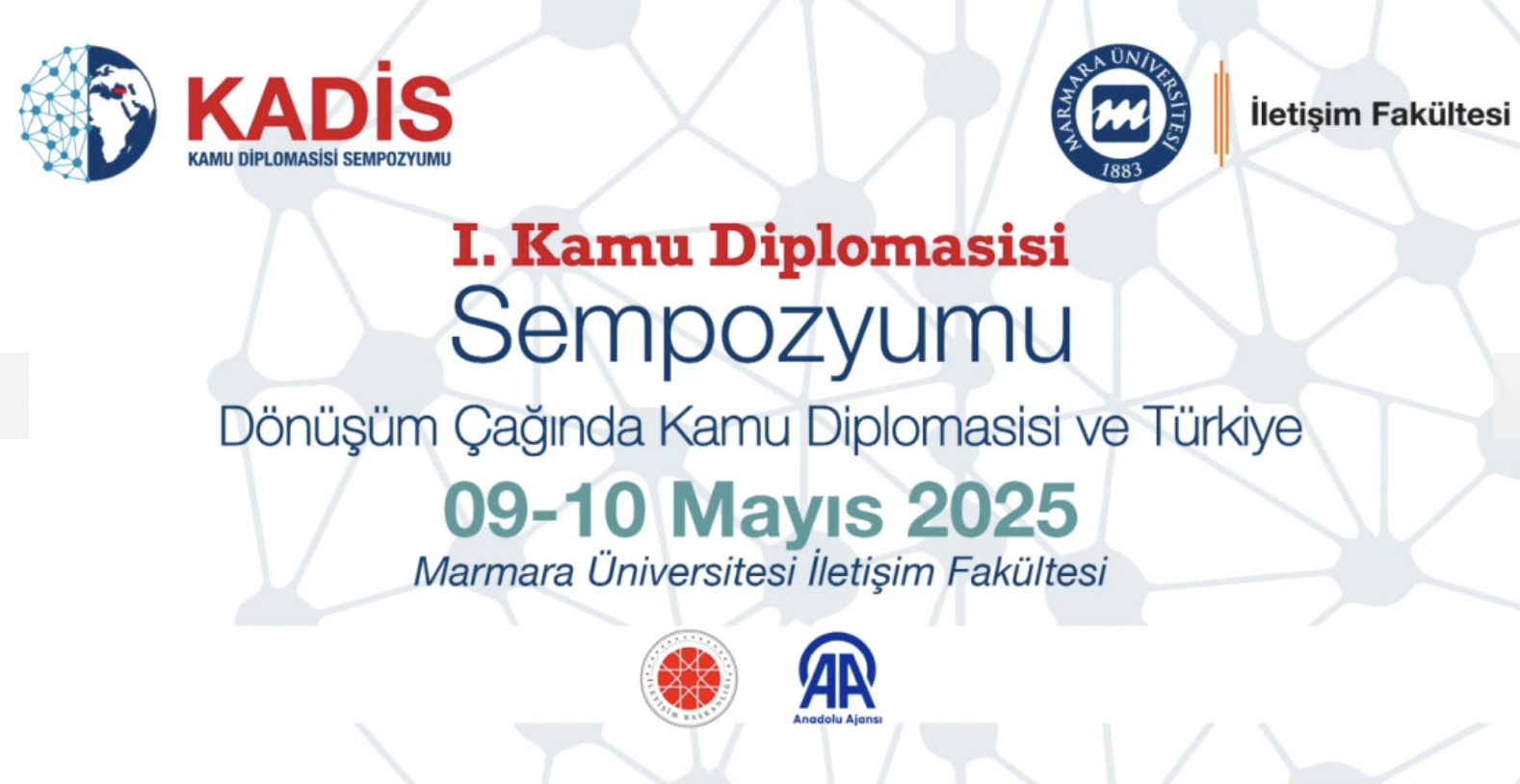
The Public Diplomacy Application and Research Center (KADAM) made significant contributions to the 1st Public Diplomacy Symposium hosted by Marmara University Faculty of Communication on 9-10 May 2025.
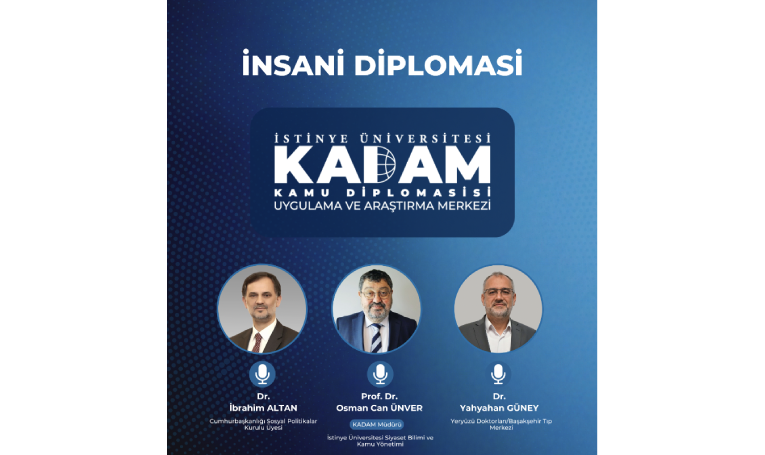
You are invited to the event to be held online by Istinye University Public Diplomacy Application and Research Centre on Monday, 25 March 2024 at 14:00.
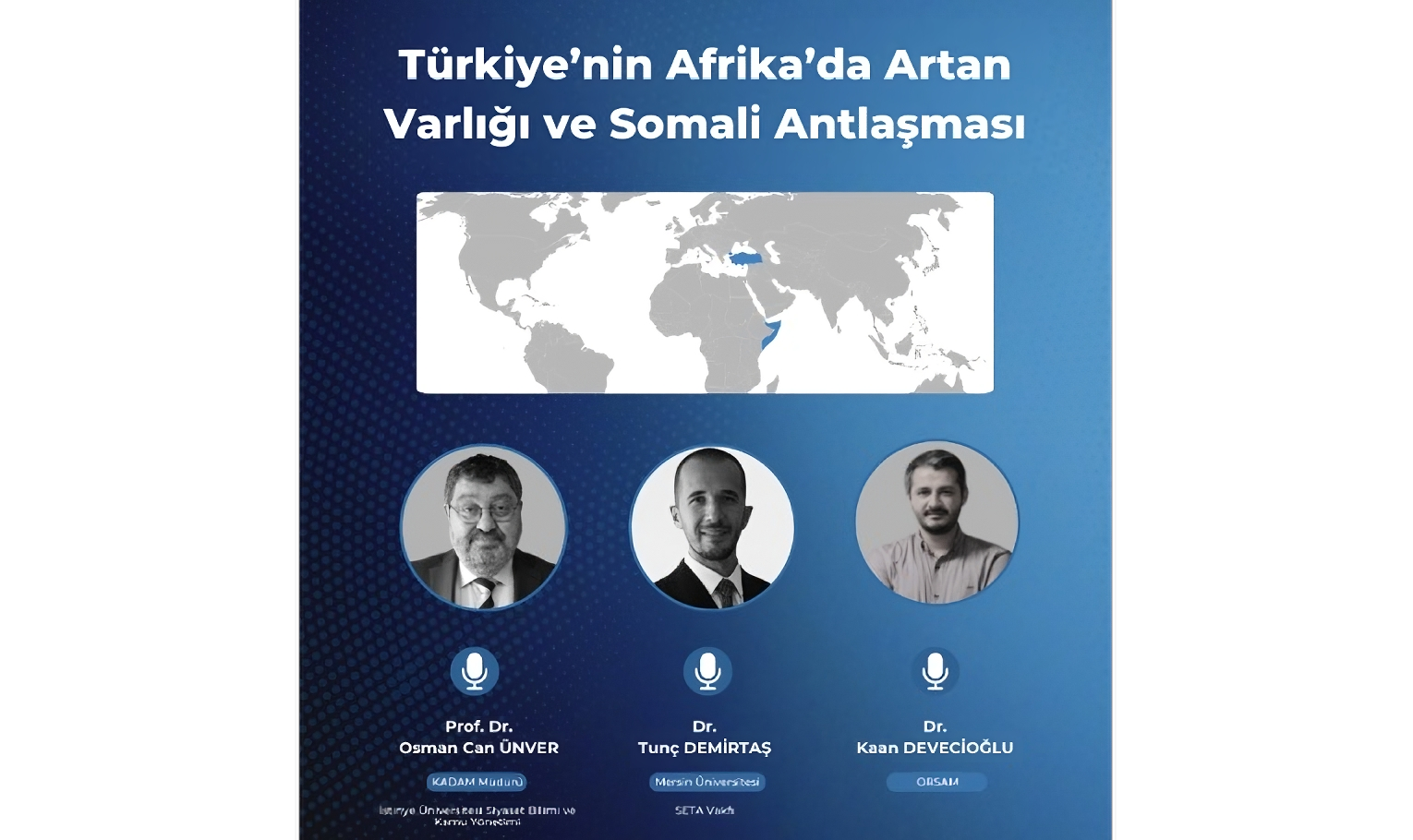
You are invited to the event to be held online by Istinye University, Public Diplomacy Application and Research Centre on Monday, 11 March 2024 at 14:00.
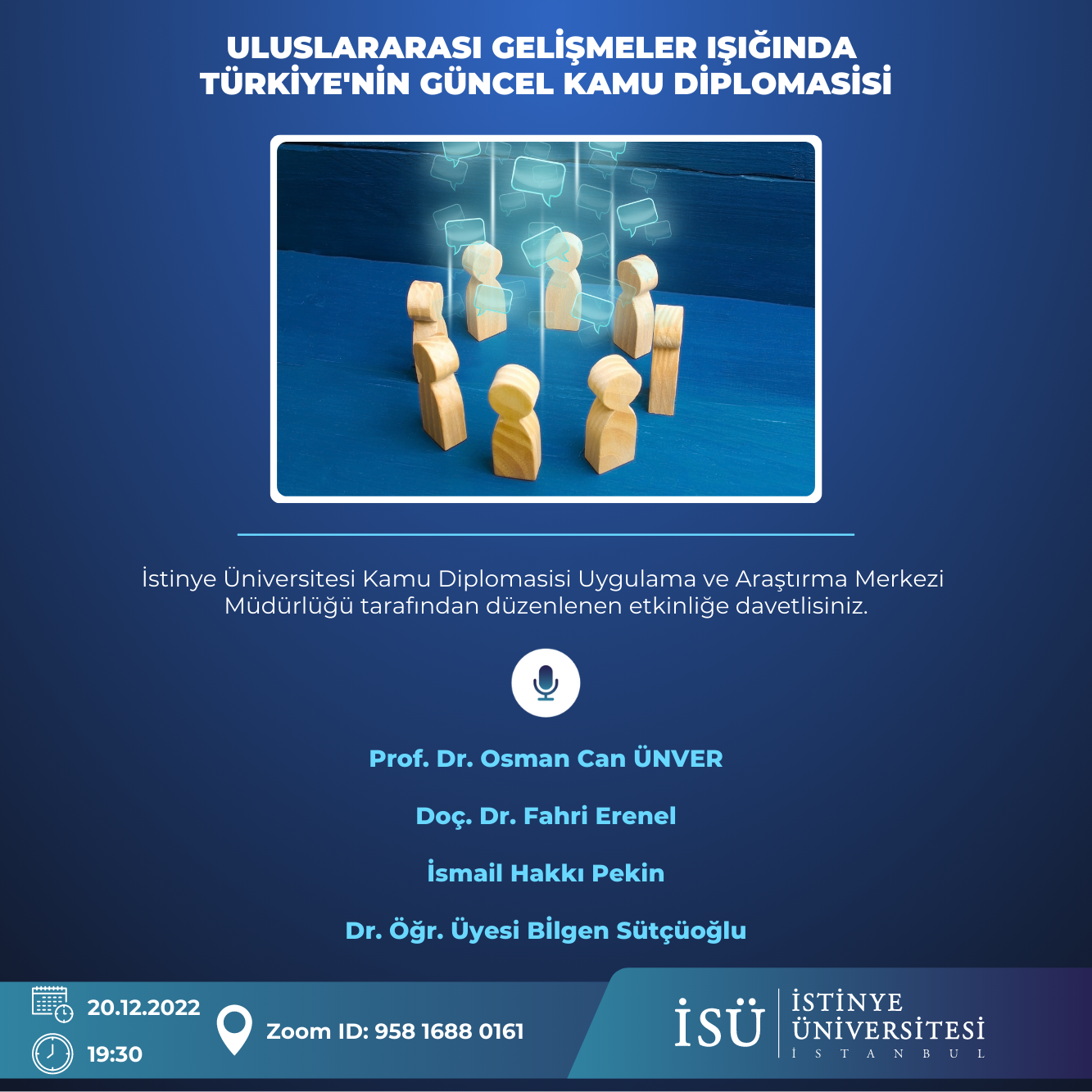
You are invited to the online event to be held by Istinye University Public Diplomacy Application and Research Center Directorate on Tuesday, December 20, at 19.30.
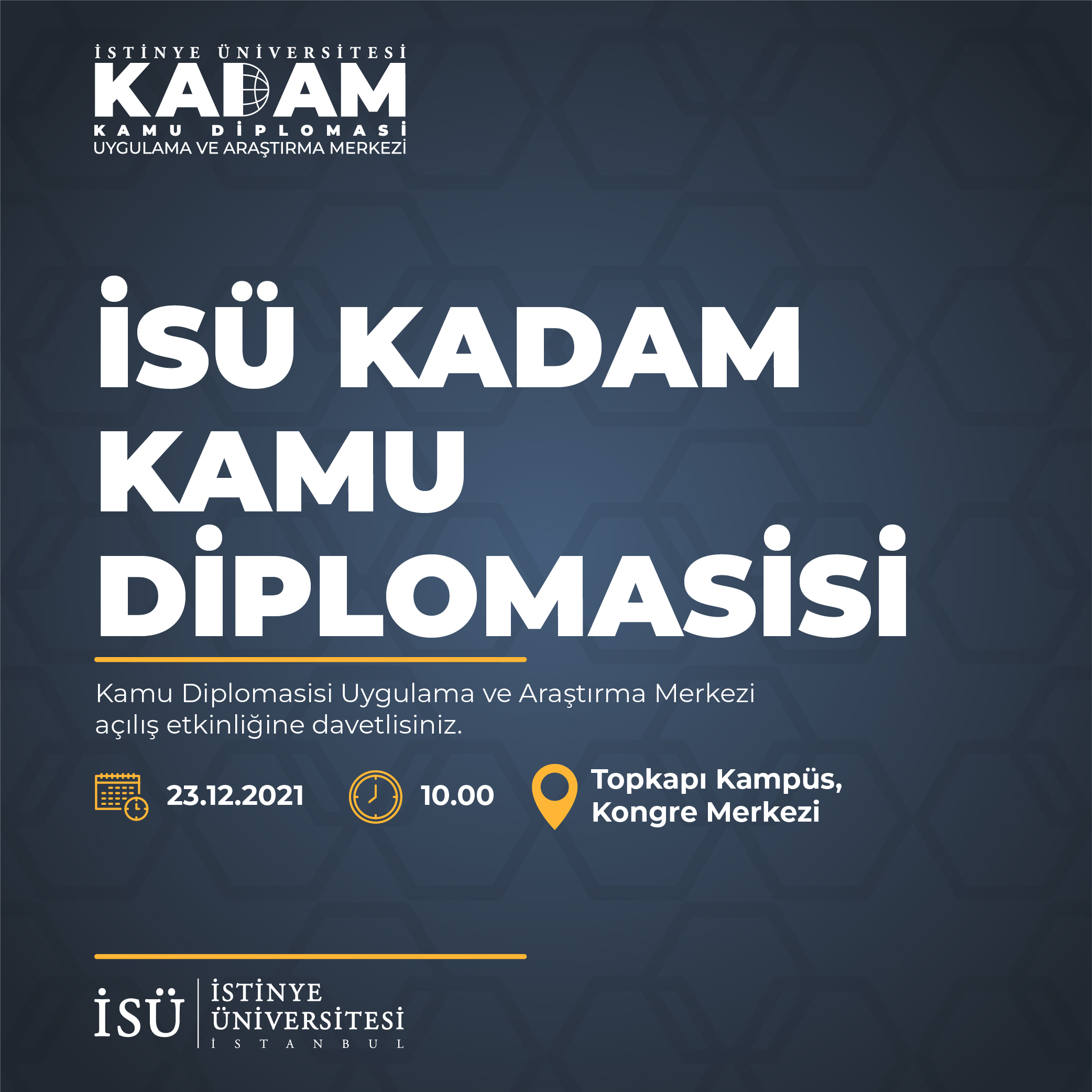
You are invited to the event organized by İstinye University Public Diplomacy and Research Center on Thursday, December 23 at 10:00 at the Topkapı Campus Congress Center.

